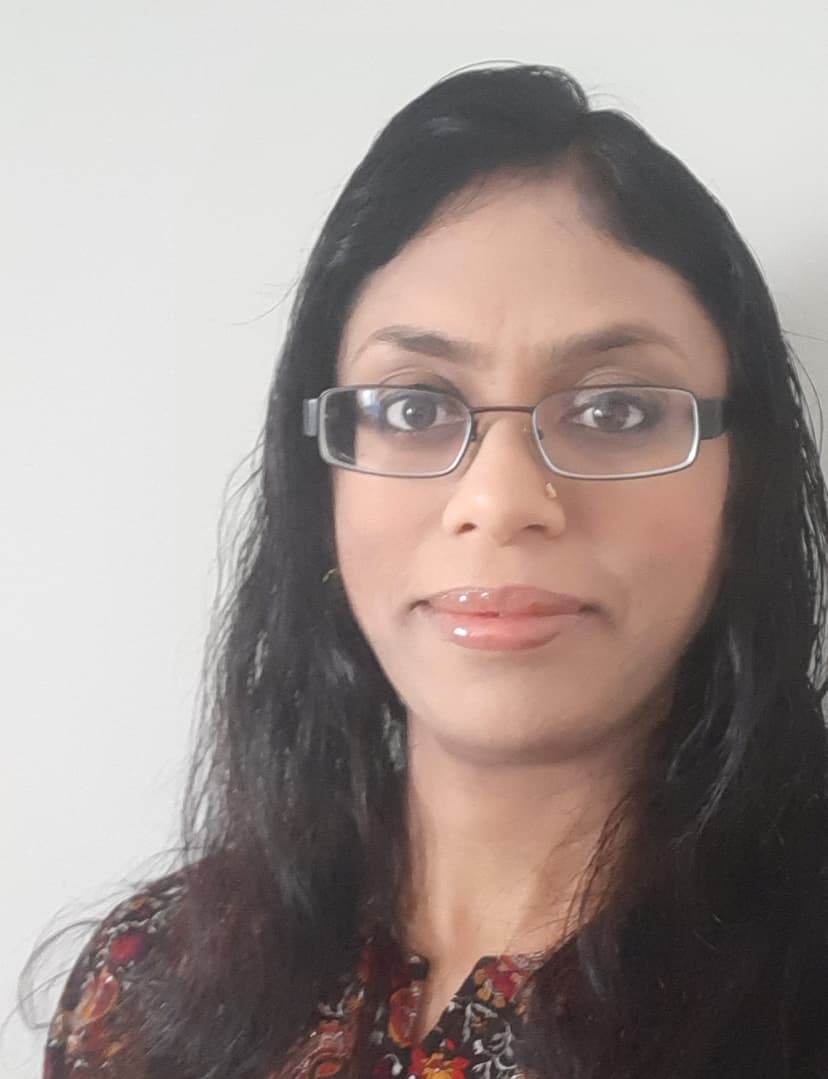Vidya Raja sees skills in artificial intelligence (AI) and machine learning (ML) becoming expected in the workplace.
“The world is kind of turning towards AI and ML. Every industry is looking at adopting ML and AI into their business operations. So, the thought was there in the back of my mind, that I should equip myself with these skills.”
Since finishing her Ph.D. in Chemical Engineering in 2012, Vidya has worked in various engineering roles. However, it soon became clear to her that picking up AI and machine learning skills would be beneficial.
“Right now, everyone is supposed to know how to use Word or Excel. I started thinking that in a couple of years, if you’re applying for jobs, that’s something they would look for. Knowing a little bit of computer programming and how machine learning works, how that's going to help improve the way you operate.”
After her contract with an engineering firm ended in June of 2021, Vidya was re-applying for jobs and noticed that the job descriptions often asked for additional skills in data analysis, data science, or machine learning. That’s when she began earnestly looking into training opportunities.
Following a beginner-level Python course, she heard about the ML Technician Certification course through a friend and applied right away. She was thrilled to get an acceptance letter and begin classes.
“I think within week one or so, I was like, you know what? This is so interesting. And then as the classes went on, as the weeks progressed, it just got more and more exciting.”
"During the interview, they asked me to walk them through my project. It gave them an idea of how I would respond to a given problem – how I would think it through."
Vidya Raja
ML Technician Graduate



From capstone project to job interviews
Coming from a non-computer science background, Vidya felt slightly worried about her ability to grasp the concepts. However, she dedicated herself and was able to keep up with the help of her instructor.
“To know how to fix a problem, you need to first know what the problem is. When I would get an error message and not know what to do, I emailed Mohammed. He was very gracious and helped me a lot.”
The entire course culminates in a capstone project, in which student groups build an ML proof-of-concept and present it to an expert panel for feedback.
“[The final project] was very helpful. It made us think about how to communicate only the relevant parts without taking attention away from the actual goal.”
“For example, the project that we worked on was on solar power generation, and then the people that I was presenting to were from the healthcare sector. They have nothing to do with solar, so we had to figure out how to make them understand the value of the project, why we’re doing it, and what we hoped to accomplish.”
The group received feedback from the panel, allowing Vidya to tweak the presentation – just in time to present it at a job interview, two weeks later.
“During the interview, they asked me to walk them through my project. It gave them an idea of how I would respond to a given problem – how I would think it through. They were definitely interested in what I learned about and how I implemented it in an actual project.”
"Ultimately, my goal is to become a machine learning engineer."
Vidya Raja
ML Tech Graduate


Vidya now works for an oil and gas pipeline software company, splitting her time between data science and integrity engineering.
“I started with them last year. And when I told them I had taken the [ML Tech] course, they were really excited about that.”
Moving forward, she is looking forward to the opportunity to begin experimenting with AI and ML projects at her workplace.
“My supervisor is supportive; he said to start exploring and see if we can use our data in an ML algorithm. I definitely want to do that. Ultimately, my goal is to become a machine learning engineer.”
Authors
Britt Ayotte